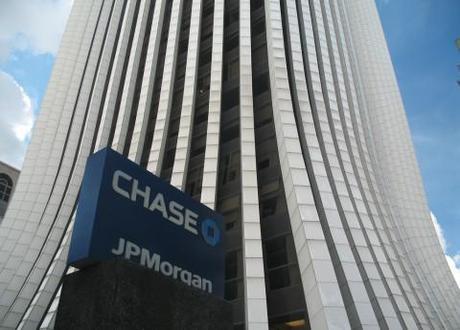
JP Morgan: $2 billion trading loss photo: DragonFlyEye
The Background
JP Morgan chairman and CEO Jamie Dimon has kept his job and $23 million pay package in the wake of a $2 billion trading loss. Dimon survived an attempt to oust him from his positions at the head of the bank thanks to a closer than expected shareholder vote at the company’s annual meeting.
The CEO apologised for the trading disaster at the meeting: “This should never have happened. I can’t justify it. Unfortunately these mistakes were self-inflicted,” said Dimon, reported CNN. The bank’s chief investment officer, Ina Drew, quit on Monday in the wake of the massive loss.
Despite the $2 billion error, JP Morgan is still expected to report a profit this financial quarter. But Dimon’s troubles are far from over. The FBI and Justice Department have launched an investigation into whether the trading loss is linked to any criminal wrongdoing.
Michael Tomasky: Dimon should quit
If JP Morgan had enough capital to use on risky trades, why didn’t they use it to help the ailing economy, such as lending to businesses? “I’m no expert on J.P. Morgan’s business, but I’ll hazard an educated guess that maybe there was more money to be made gambling in the derivatives casino than straightforwardly and boringly lending money to businesses,” wrote Michael Tomasky at The Daily Beast. And this is the issue with the current banking system: it encourages risk and offers no incentive for “civic obligation or civic morality”. There’s no chance Dimon will actually take responsibility and quit, said Tomasky, “but maybe someday someone in his position will… And maybe, eventually, we’ll become a society again, not just an amalgamation of consumers.”
“If the CEO is also the chairman, as is the case here, then Mr. Dimon is effectively in charge of monitoring his own performance. The stakes are too high to continue where an all-powerful CEO is his own boss,” said shareholder Lisa Lindsley at the JP Morgan annual meeting, reported The Washington Post.
Put Dimon’s apology to shareholders in context
Dimon has recently slammed Democrats for creating a “climate of resentment towards successful people” and described criticism of big banks as “infantile”, pointed out James Moore in The Independent. “Set against this sort of rhetoric, Mr Dimon’s apologies don’t so much look like expressions of regret as they do the first phase in a very deliberate and carefully crafted damage-limitation exercise whose ultimate aim is to keep him in his job,” Moore said.
Dimon still trying to limit regulation
According to Michael Hiltzick at The Los Angeles Times, the JP Morgan CEO’s defence essentially amounts to: “Hey, everybody makes mistakes — sure, we lost $2 billion, but we’ve still got billions more, and we’ll figure out this one ourselves without the need for any further regulations, thank you.” But in fact, argued Hiltzick, the $2 billion loss demonstrates the pressing need for the exact regulation Dimon wants to avoid: “The only way to make this sort of risk-taking safe for the financial system is to make it illegal in the first place.”
How much did the regulators know?
Writing in The Christian Science Monitor, Ron Scherer explored how much US financial regulators Office of the Comptroller of the Currency (OCC) and the Federal Reserve Bank of New York knew about JP Morgan’s impending losses. “In the future, the OCC has indicated it will be closely monitoring JP Morgan as well as other financial institutions,” Scherer wrote.

